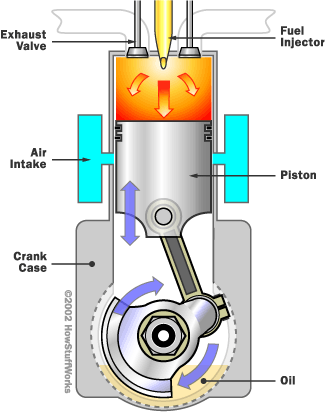There has been such a spate of fed-up drivers removing the diesel particulate filters (DPF) from their cars that the authorities in the UK have decided that, from next month, any car submitted without a DPF which should have one will instantly fail its MOT (the UK equivalent of the NCT).
That’s interesting on a number of levels. First off, it indicates that the technology behind DPFs is still in its infancy, in spite of the fact that such devices have been around for more than a decade. What are they exactly? They are precisely what they sounds like – filters in your exhaust system which clean and strain the nasty pieces of particulate (soot, essentially) which all diesel engines generate.
Those particulates are coming under ever increasing scrutiny. We’ve known for a long time that they cause air pollution and can do such trivial things as staining the facades of buildings, but there are far more worrying aspects to them. The biggest problem of all is that particulates are carcinogenic – they cause cancer. Then there’s the issue of general air pollution. You’ve only got to look across the water to the UK and France in the past couple of weeks to see just how bad air quality can get in a very short space of time. In England, air pollution in the south east got so bad that people were actually advised to stay indoors for a time, while Paris has been so smogged up in recently that the Government there enforced a strict limit on the number of cars entering the city – with number plates only being allowed in on alternate days.
Lessons from US - "Smog"
Wind the clock back to the 1970s and California and smog there became so bad that new laws governing air quality were introduced. The Clean Air Act
 was so stringent that it crippled a US car industry that was too slow to react at the time, but it did eventually mean that all of us had catalytic convertors and clean-burning engines. DPFs are a natural extension of that process.
was so stringent that it crippled a US car industry that was too slow to react at the time, but it did eventually mean that all of us had catalytic convertors and clean-burning engines. DPFs are a natural extension of that process.
So, if they’re essentially a good thing, why are drivers removing them? Because they’re a contentious maintenance point, that’s why. If a DPF filter gets clogged and isn’t cleaned out, they can fail, triggering an engine management issue (many cars with a faulty DPF will go into ‘limp-home’ mode) and they can be ruinously expensive to replace.
The problem though is often an issue of driving style. Most DPFs are self-cleaning, but they need the engine and exhaust to get hot enough for long enough to safely and cleanly burn away the soot. With many buyers now going for diesel power, but only doing short, low-speed hops on their daily drives, their DPFs are never getting up to temperature to clean themselves out. Then there’s clogging. Then there’s an engine management light. Then there’s a big bill and an unhappy owner.
There’s an additional problem that people jump to the conclusion that a DPF warning light means a problem with the DPF. Sometimes (and this is an issue some Mazda drivers will be familiar with) the warning light doesn’t refer specifically to the DPF, it can be an issue somewhere else in the engine’s emissions-monitoring apparatus. If you suspect a DPF problem, make sure that your car is checked out by a garage which is sufficiently familiar with the brand’s electronic architecture to be able to tell the difference. Many owners have had DPFs expensively replaced only to find that the light is back on again a few miles out from the garage.
Horses for courses
So what’s to be done? Well, much can be done by car buyers, simply by making better purchasing decisions. There are a lot of people out there driving diesel-engined cars who simply don’t need to be. If your annual mileage is low, and your route mostly an urban one, you’re far better off in a petrol-engined car. Modern petrols are now getting within shouting distance of diesels in terms of economy and they are usually significantly cheaper to buy in the first place – a price gap that often far outweighs any potential savings on fuel and motor tax.
Secondly, technology will eventually create a solution. Already DPFs are in production which require far lower temperatures to self-clean, which is a big help, and eventually the entire diesel combustion process could potentially become clean and efficient enough to do away with them altogether.
In the meantime though, beware when buying a second hand diesel. If the mileage seems unusually low, be alert to potential DPF issues further down the road. If the car is a UK import, check to make sure that the DPF hasn’t been removed. Check that too on an Irish car – it’s not currently an NCT requirement that the DPF be fitted but it almost certainly will be down the line. Be especially aware of a potentially botched ‘back-street garage’ job on DPF removal. The exhaust system of your car isn’t just an empty pipe any more, it’s as sensitive a mechanical part as any other and needs to be cares for properly, so beware of bodges.
Finally, weigh up your buying options carefully. If you’re in that low mileage, city driving bracket, diesel could turn out to be more trouble than it’s worth..